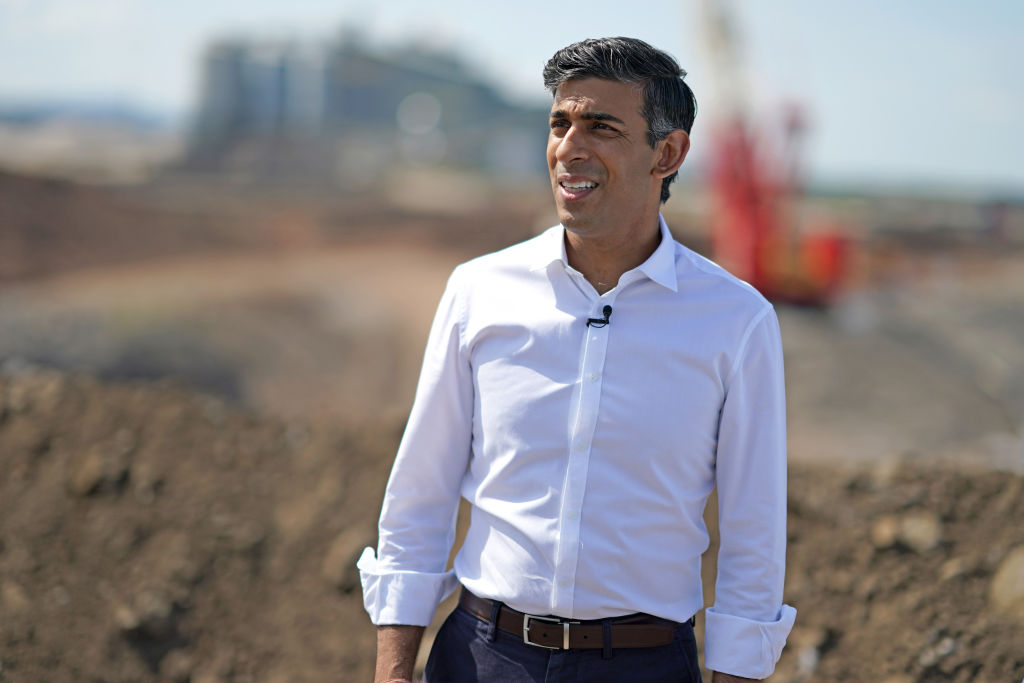Sunak’s green belt ban is a plea to Tory members but will fall flat at an election

YOU would be forgiven for thinking Rishi Sunak woke up yesterday morning and decided to troll young Londoners. The former Chancellor of the Exchequer has struggled to build momentum behind him since taking the lead in the first series of votes to pick the Tory leader. Where he surged ahead to win the support of MPs, when it comes to Conservative Party members, his campaign has flatlined.
So he’s thrown a golden nugget to members: he won’t build on the green belt and, in fact, he will tighten the complex labyrinth of the planning system to “save” these already fiercely protected areas of land.
To begin with, let’s look at the numbers: the National Housing Federation estimates England needs 340,000 new homes every year, just under half of these should be affordable.
Earlier this year, Boris Johnson admitted his promise of building 300,000 homes a year by 2025 might not be met.
No kidding.
In fact, the numbers are going backwards. According to figures from the Department for Levelling up, housing and communities, in the first three months of this year the number of developments where building work had begun was down 7 per cent compared to the same quarter last year. It was a measly 1 per cent increase on the last quarter of 2021, which, in itself, was 11 per cent lower than the same period in 2020.
Between April 2020 and March 2021, there were 216,490 new homes built.
By a streak of divine providence, the Office of National Statistics published updated stats on housing affordability a matter of hours after Sunak announced his plan to “safeguard” the green belt.
You needn’t go much further than the topline: the average home sold in England cost the equivalent of 8.7 times the average annual disposable income. Across English regions, an average priced home in the North East cost the equivalent of almost 12 years of earnings for a low-income household. In London, that jumps to 40 years.
Let’s be clear, these are mostly not the same people as the card carrying Conservative members who hold Rishi Sunak’s fate in their hands. Not now at least. But if the North Yorkshire MP does succeed in his bid to take a hold of the keys to No10, they will be.
The policy also underestimates the Conservative Party membership, assuming it is packed full of people who care about derelict patches of out-of-use farmland to the exclusion of all else.
If people cannot afford to buy a house in cities like London, they will simply leave, they will not help our economy grow, they will not have children because they cannot afford an extra bedroom and our growth will continue to stagnate. Hardly a campaign for future prosperity then.
In the housing industry, Sunak’s plans were met with a familiar groan.
“We feel like we’ve been here before. Rather than putting barriers in place for development, what we should be looking at is where there are opportunities to intensify existing sites,” said Marcus Dixon, director of UK residential research at JLL.
He said the policy amounted to telling developers: “We’re not going to let you build here, and we’re not going to offer you any incentives to build anywhere else”.
The majority of development doesn’t happen on green belt land, Dixon emphasised. But sometimes it is the most appropriate spot for housing.
Sunak’s policy was lacking the kind of strategic thinking needed to really tackle the housing crisis, he said. And instead of working with local communities to find a solution which goes with the grain of an area, blanket statements such as the green belt ban stokes an anxiety that says “we don’t want any development, of any kind.”
Both Truss and Sunak are trying to paint themselves as a modern-day Margaret Thatcher, cherry-picking different parts of her eleven years in office and claiming it as their own.
Thatcher herself was a defender of the green belt. But in 1990, the average house price was £57,726 in comparison to average earnings of £20,448. In 2020, the average house price was £237,834 in comparison to an average household income of £37,100. One of the other key themes of Thatcherism was a small state and the ability of personal autonomy to fuel innovation and economic growth.
Right to Buy, albeit one of the forebears of the current housing crisis, demonstrated Thatcher’s belief that giving people the ability to own their own home would create more ambition.
Sunak might be trying to build support behind the 200,000 Conservative Party members but should he win, he will have to face down a much broader coalition of voters who have watched their hopes of owning a home pulled out from under them.
